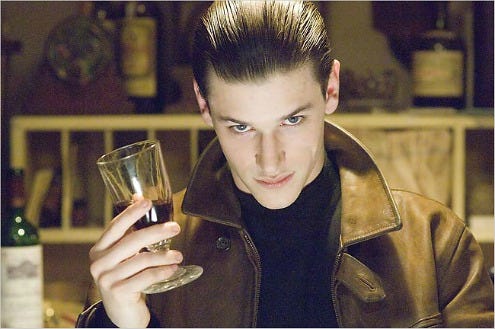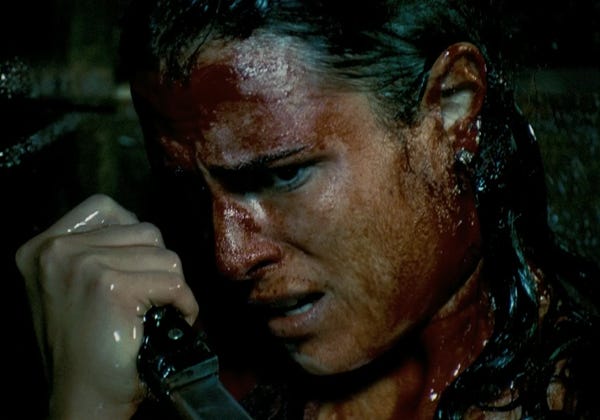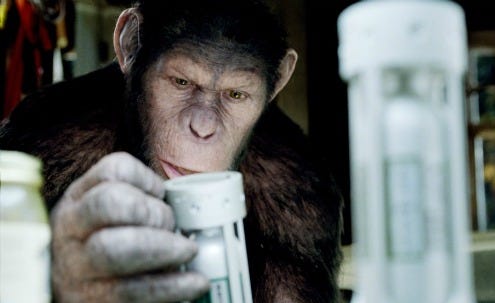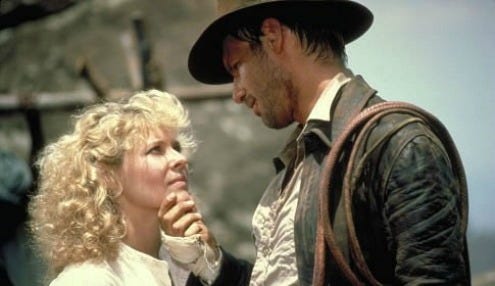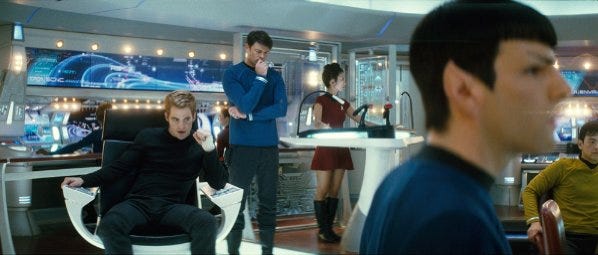The Best and the Worst of the Prequels
The prequel phenomenon has cast an odd lot for film. In theory, they are (well, were at one time) an innovative and stylish alternative, for both fanboy and filmmaker alike, to the usual sequelizing a franchise to death. "What if we can go backward and see how our characters got to where they were at the start of their first movie?" we all asked, giving us the chance to move narratively before the origin story.
But in practice, prequels are rarely engaging simply because you already know what's going to happen. If your stars are in danger, you know they're going to survive because we know events that transpire after this particular story is complete. Filmmakers have to build tension around other characters, which is tough to do because moviegoers are there to see what the main characters are up to, not the fate of the franchise's tertiary characters. It would be like asking your grandparents to tell the story of your great-grandfather, then focusing half the story on his friends. Who cares about that?
One of the better prequels of the bunch (and one of the unheralded flicks of the summer), "X-Men: First Class," hits DVD and Blu-ray Sept. 9, and in honor of Matthew Vaughn's rare successful look back into the X-Men mythos, here are the worst and best of a generally bad bunch.
Worst
Star Wars prequels (1999, 2002, 2005)
The granddaddies of the modern prequel are still the most disappointing, badly botched and worst connected to their predecessors. George Lucas, directing his first films since 1977 (the first "Star Wars"), wasn't just rusty, he apparently fell down stairs and got Film School Amnesia, as not a single one of the three films he reluctantly directed (Hollywood lore has it that Lucas begged any and everyone to direct, but no one would) had any semblance of narrative integrity, character development, dialogue or much of anything at all beyond cool visual effects.
The first two films were so bad that the (at best) mediocre "Revenge of the Sith" had critical praise heaped on it mostly because critics grew tired of bashing the same old things over and over. (And yes, lest you dub me a "Sith" hater, let's not forget the horrible Luke-and-Leia birth scene, followed by Padme's death and the Darth Vader "NOOOOOOOOOO!") Fanboys for years wrote their own versions of these films and apparently rather than writing his own, Lucas just grabbed three of those scripts from the nearest middle-school student and threw his financial might behind them.
Hannibal Rising (2007)
Exploring the origins of famed serial killer Hannibal Lecter was not only unnecessary, it was psychologically incorrect. Serial killers as demented as Lecter almost invariably go through intense psychological trauma from childhood (usually by abusive parents) and get off on torturing small animals, then working up to humans. They don't live the good life until their teen years, have a loving sister and an uber-hot mentor, and they certainly don't become cannibals to earn retribution. Plus, with apologies to Brian Cox, after seeing Anthony Hopkins as Lecter no one else can do it. Fail.
X-Men Origins: Wolverine (2009)
The "X-Men" franchise was on a roll through three films — the disappointment of the mediocre "X-Men: The Last Stand" aside — but hit rock bottom with this half-baked origin story. It managed to take one of the more compelling comic-book backstories and turn it into a dull, plodding, lifeless film that lost continuity (not to mention several inches on the villain Sabretooth, from Tyler Mane's nigh 7 feet in the first film to Liev Schreiber's paltry-by-comparison 6'3), some head-scratching casting (will.i.am? Srsly?!), too many stunt cameos (we didn't need Professor X, Storm and Cyclops, only to give Gambit a scant two or three scenes), and substandard visual effects all around. As a prequel, it's not as bad a film as, say, a "Scorpion King," but in terms of the potential of the source material, no prequel (excepting "Star Wars") fails to live up to its potential more than "Wolverine."
Texas Chainsaw Massacre: The Beginning (2006)
A prequel to the 2003 remake of "The Texas Chainsaw Massacre," but NOT the sequel the the original horror classic...aw, screw it. I could expand on what a fellow Yapper said about this film, but I think he says all that needs to be said.
Best:
Rise of the Planet of the Apes (2011)
Engaging, provocative, and foreboding, "Rise" is the surprise of the summer that actually delivers. Seriously, who expected this to even be watchable, much less one of the couple-best flicks of the summer? It's murky as to whether it's a prequel to the original Charlton Heston film or the Tim Burton monstrosity from 2001 starring Mark Wahlberg. James Franco plays the unwitting father to the ape movement, smuggling out super-smart monkey Caesar (Andy Serkis doing another of his MVP Gollum/Kong mocap performances) and raising him, then dumping him in an ape-rescue facility that gives him access to what will become the Ape army that will take over the world.
Indiana Jones and the Temple of Doom (1984)
What's that you say? "Temple of Doom" is a sequel, not a prequel? Au contraire. "Temple" takes place several years before "Raiders of the Lost Ark," a sneaky, savvy move from Steven Spielberg and George Lucas. Aside from being a film that changed Hollywood (the first to carry the rating PG-13, it totally changed the way films were made and marketed), it was a darker, more violent and supernatural look at Indy (the heart-removal scenes are still pretty graphic and creepy, not to mention a little silly) and is an undeniably fun ride.
The Good, The Bad, and The Ugly (1966)
Say what? OK, maybe not really, but maybe: the "Man with No Name" trilogy are really just thematically connected films rather than directly connected films, but some believe that since this took place before the other films, it's a sequel. Ehh...maybe it really doesn't apply, but hey, close enough, plus it's a classic. What, you don't like classics?
Red Dragon (2002)
A film that crosses gimmick genres, "Dragon" is both a prequel to "The Silence of the Lambs" and "Hannibal" and a remake (of 1986's "Manhunter"). "Dragon" isn't a great film, but a serviceable thriller starring Edward Norton as Will Graham, pursuing a serial killer (Ralph Fiennes) by employing the services of the notorious Hannibal Lecter (Anthony Hopkins), whom Graham captured almost at the cost of his life. It gets a little silly toward the end, and the studio and director Brett Ratner fluffed up Lecter's role to capitalize on the popularity of the character, but it maintains tension enough to keep things interesting.
Paranormal Activity 2 (2010)
The love-it-or-hate-it entry on the list. Like most "found footage" flicks, "Paranormal Activity 2" is a ghost story with just a touch of reality, taking place before the events of the first film and shedding light on just what happened to the pretty, haunted Katie and her beau Micah. It effectively added backstory to what was initially a very simple concept, managed to maintain suspense by focusing on Katie's sister (Sprague Grayden) and her new baby and not simply trying to explain things. The third film promises more, being a found-footage prequel to the prequel, going back even farther into the sisters' past to further terrify audiences.
Star Trek (2009)
Another genre-bender, this is both prequel and reboot, focusing on Kirk and Co.'s first mission while rebooting the entire franchise. Since it's "Star Trek," though, time travel allows director JJ Abrams to nod to the past with "Spock Prime" (Leonard Nimoy) and reinvigorate the franchise with younger characters that are freed from the constraints of being true to "Trek's" vaunted canon. It was a masterstroke and a heckuva film, from its bravura opening sequence of Kirk's birth to managing to make the tried-and-true Enterprise into an exciting vessel once again.




